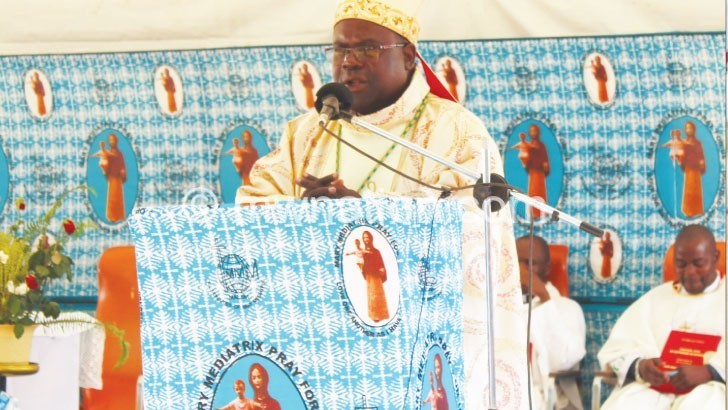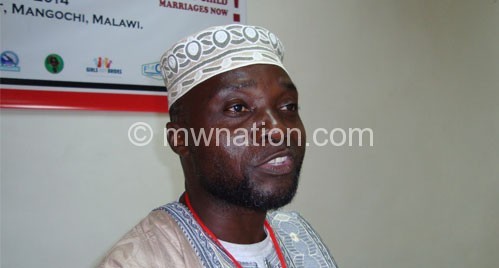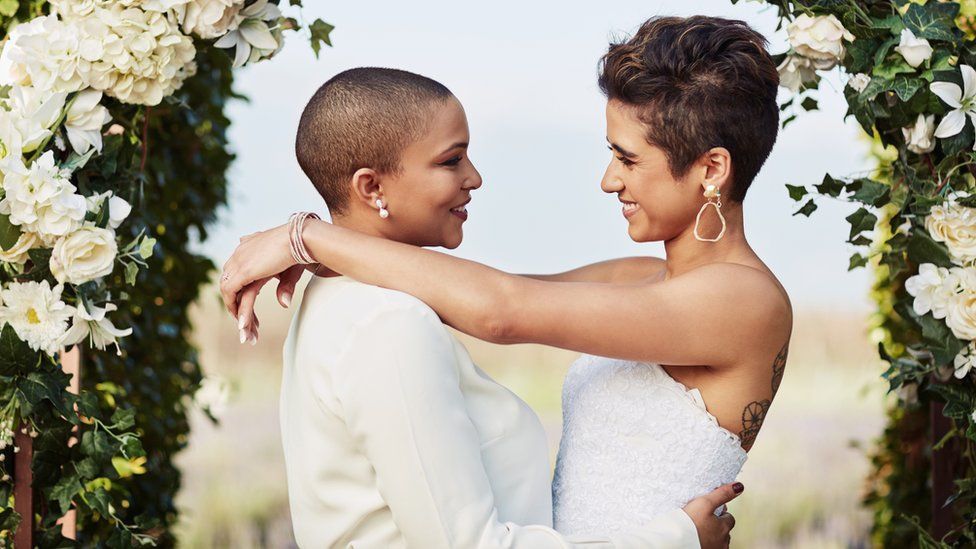Bishops, PAC in joint protests
The quasi religious body Public Affairs Committee (PAC) and the Catholic Church’s Episcopal Conference of Malawi (ECM) plan to stage anti-homosexuality protests, escalating their discontent with same sex unions beyond the courts where there is a pending case.
Initially, the Catholic Church’s Archdiocese of Lilongwe scheduled demonstrations against homosexuality for legalisation last Thursday and informed security and local authorities.

However, in an interview on Friday the archdiocese’s chaplain Father Emmanuel Diliwo said they stopped the plans to pave the way for PAC and bishops’ body, ECM, to hold joint protests.
He said: “This time around it is ECM and PAC who are looking into it. So, I would ask you to talk to them, if anything.”
The ECM president Bishop George Tambala confirmed the planned protests yesterday, saying a joint force will solidify credibility to their voice.
He, however, said they have not yet agreed on the dates and whether the demonstrations will be narrowed to a single event in a specific city or nationwide.
“We have agreed with PAC that we should do it together. The [organising] committee will soon inform us on the date. As an archdiocese, we wanted to express ourselves on this very important issue.
“As we proceeded, many others told us that coming together would create a much more credible voice to the concerns we are raising that we are opposed to this same sex marriage,” said Tambala, who is also the Archbishop of the Archdiocese of Lilongwe.

When told that the country is not governed by religion but secular laws, Tambala responded: “Secular laws are built on societies and it’s the citizens who make the laws. So, we have our beliefs and values. Actually, even the laws you are talking about are shaped by values that come from stakeholders.
“We are a stakeholder. A secular law does not just come from the vacuum. It has to emanate from the citizens. We are the citizens and we feel that we should express ourselves. We need to be heard.”
Meanwhile, the Muslim Association of Malawi (MAM) which is affiliated to PAC has said they support the plans to hold the demonstrations.
In an interview yesterday, MAM spokesperson Sheikh Dinala Chabulika said the demonstration will be a warning to authorities not to approve same sex unions.

He explained: “Of course, officially we haven’t been communicated to. But this is a very good idea and we support it. The reason is that we want to send a message, especially those that do not go to the church or mosque.
“You know, people can be cheated and start supporting the idea of homosexuality. We want to reach out to those people. They should know that it’s evil and not acceptable.
“The other issue is about sending a warning to the authorities like Parliament that they should not try to enact any law that allows homosexuality.”
The planned demonstrations come after ECM alongside the Malawi Council of Churches, MAM and the Evangelical Association of Malawi moved the High Court of Malawi to join the case where pro-same-sex relationship advocates want an interpretation of Section 153 (c) of the Penal Code.
In an earlier interview, the Social Justice Foundation, a human rights organisation that focuses on addressing economic, justice and psychosocial needs of the lesbian, gay, bisexual, transgender and queer (LGBTIQ+) communities in the country faulted the planned demonstrations
In a written response to our questionnaire, the foundation’s executive director George Kachimanga said the religious bodies should let the courts preside over the matter.
He said: “They have a right to demonstrate just like any other citizen or institution in the country. However, I would appreciate it if they don’t mislead Malawians in their messaging.
“The cases are in the hands of the High Court. Let them respect the Judiciary, do their work and the law through the Constitution will guide us.”
But in an interview with our sister paper The Nation edition of 20 June 2023, University of Malawi professor of law Garton Kamchedzera dismissed fears that the demonstrations may influence the courts.
He said: “Firstly, those wanting to demonstrate have a right to express themselves. Secondly, courts make decisions according to law, legal issues raised in a particular case and the material facts of a case.”
The issue follows a constitutional referral matter of 2021 involving a Dutch national Jan Willem Akstar and a transgender woman Jana Gonani who are challenging the banning of same sex marriages in the country.
Akstar and Gonani moved the Constitutional Court to declare the two pieces of legislation unconstitutional, arguing that they violate their right to privacy and dignity, among others.
In 2012, the Ministry of Justice issued a moratorium on arrests and prosecutions for consensual homosexual acts. However, a 2016 High Court order suspended the moratorium pending judicial review by the Constitutional Court.





